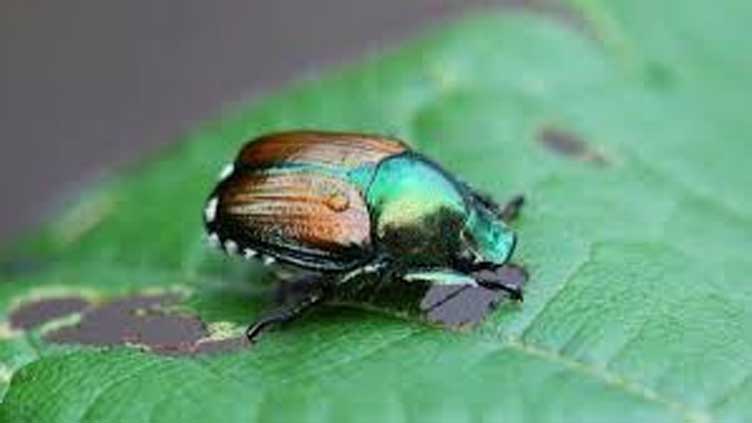France warns against influx of Japanese beetles that can decimate ecosystems

World
France warns against influx of Japanese beetles that can decimate ecosystems
(AFP) - Classified as a "priority quarantine pest" within the European Union, the Japanese beetle attacks several hundred species of food, forest and ornamental plants – including vines, fruit trees, and lawns.
The warning comes as a significant population of Japanese beetles was detected on 20 June in Switzerland near the city of Basel.
The Swiss authorities discovered a second infestation some 3 kilometres from the French border.
As the harmful beetle is approaching French territory, alerts were issued by the Doubs and Haut-Rhin departments in particular, following a notification on 21 June from the Ministry of Agriculture and Food Sovereignty to raise awareness of the risk to crops and plantations and the potential impact on the economy.
Posting on X, the French Agency for Food, Environmental and Occupational Health and Safety, ANSES, explained: "The Japanese beetle is a plant pest already present in Italy and Switzerland. It is highly likely to enter France, and environmental conditions are favourable".
To display this content from X (Twitter), you must enable advertisement tracking and audience measurement.
Traps set across Alsace
Originally from Asia, this plant-eating beetle first established itself in the United States and then in Europe.
It has been present in Italy since 2014 and in Switzerland since 2017.
According to the Doubs prefecture, adult specimens "measure around 10 to 12 millimetres in length and can be confused with other beetles present in France, in particular, certain chafer beetles".
The Japanese beetle spreads by traveling on trains and lorries.
Since June, at least 39 traps have been set throughout Alsace near "sites at risk of introduction", such as customs platforms, rail freight stations, airports, motorway service stations, road centres and markets.
"The discovery of the outbreaks in Basel led to the introduction of enhanced surveillance in France at the Swiss border [in the commune of Saint-Louis in particular], where traps have been set up at the rate of one every kilometre," the prefecture of France's Grand Est region said.
A prefectural decree prohibits the transport of soil, plants rooted in soil, rolls of pre-cultivated turf, plant debris and compost outside a defined area.
Several communes close to the Swiss border have been affected by this ban and the French authorities are keen to raise public awareness.
The most effective way of combating the proliferation of the Japanese beetle remains surveillance to stop any outbreaks.


